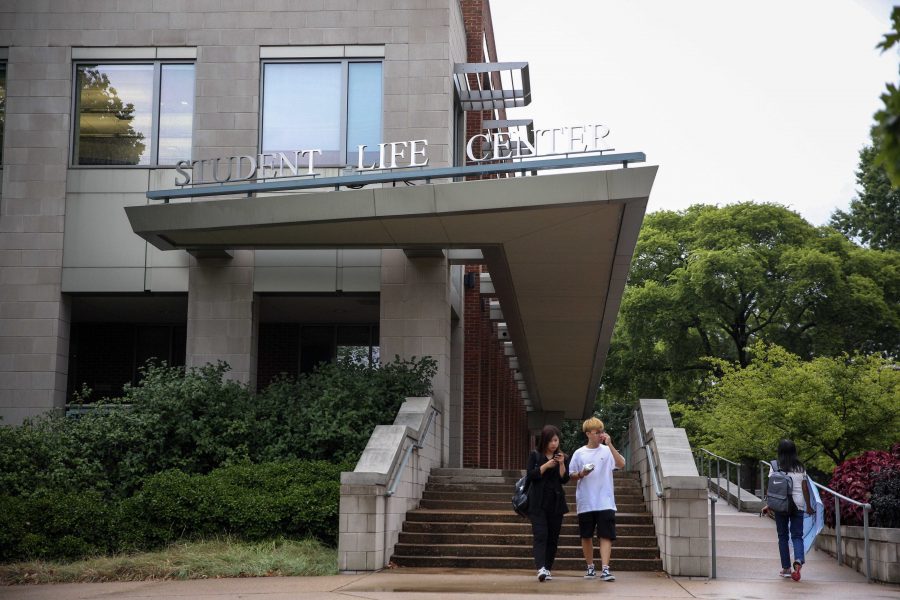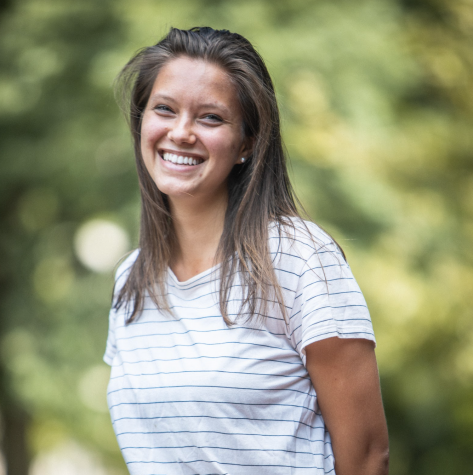More than 75 students, faculty, and staff attended the Equity, Diversity and Inclusion Town Hall held Thursday, Dec 6. According to a survey taken during the event, roughly 80 percent of those in attendance were staff and 15 percent were faculty, with undergraduates, graduate students, and professionals making up the remaining five percent.
Melissa Thomas-Hunt, Vice Provost for Inclusive Excellence, and James Page, Chief Diversity Officer and Vice Chancellor for Equity, Diversity and Inclusion, led the ninety-minute town hall, which followed a similar event held in November. Page joined Vanderbilt three months ago, and the two town halls form part of his efforts to better understand the experiences and needs of the University community.
After an initial welcome and an anonymous demographic survey of participants, Page asked participants to anonymously respond to the statement, “I can be successful at Vanderbilt without compromising important aspects of my identity.” Thirty percent responded that they somewhat disagreed, disagreed, or strongly disagreed with the statement, and much of the ensuing discussion centered on causes of and solutions for this phenomenon/reality.
Page also used an interactive presentation software called Mentimeter to collect and display answers to the question “What word comes to mind when you hear ‘Vanderbilt’?” Out of the approximately 40 words collected, “elite,” “prestigious” and “privilege” were the most common responses.
“The contradictory terms here demonstrate how different our experiences can be at the same university,” said William Hale, Lecturer in the Department of Sociology, during the event. “We talked about inclusion, but at the same time ‘white’ and ‘whiteness’ are there.”
During the discussion, both faculty and students called for greater transparency when microaggressions are reported.
“We know that there have been reports and incidences and a process, but then nothing happens,” Adjunct Professor in the Owen School of Business Mario Avila said during the event. “We believe that nothing has happened because we have never been told that there is a result.”
Overall, there was a clear call for a larger cultural change at Vanderbilt.
“We are exhausted as people of color,” senior Erin Hardnett said. “We are so exhausted to constantly have to go into rooms where we do not feel welcome and make our own selves vulnerable. This vulnerability is so exhausting. I think that what we really want is some kind of cultural shift on this campus.”
Hardnett’s statement elicited hearty applause from the group.
Applause erupted again after a remark by Ed Wisdom, Director of VUIT Cloud Services.
“It should raise a brow to executive and senior leaders when you’ve got people in management who have not taken enough interest to come to the [voluntary] sessions– but yet they have to manage diverse groups.” Wisdom later added, “My schedule is as busy as the next person’s, but I’ve taken time out to come to both of these sessions, and I see peers who have yet to come to one.”
Page announced that Chancellor Zeppos had charged the Office of Equity, Diversity, and Inclusion with executing an engagement and satisfaction survey across campus. Discussions are currently underway to determine the best method for implementation of such a survey.
Thirty questions regarding equity, diversity and inclusion were submitted for Page and Thomas-Hunt by the Vanderbilt community prior to the town hall. Page said that answers to these questions would be released online in the near future.
Both Page and Thomas-Hunt emphasized that in the future their office would focus on educating and enabling leaders around campus– beginning with events like this town hall.
“We can empower our leaders with the workshops, the education, the ability to stretch their muscles to build it,” Thomas-Hunt said, “so that when situations arise, they actually have seen them before and they know how to engage.”



